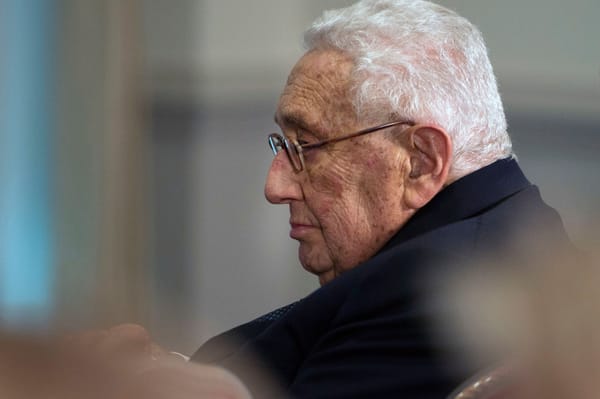So far, the reaction to Henry Kissinger’s death has been a mix of bland encomiums and predictable sloganeering. On the left, war-crimes accusations and fantasies about the late diplomat reuniting with Margaret Thatcher in hell are a dime a dozen. But something feels forced about the macabre jubilation over his death. And in a time when a new generation of American leaders has been bogging down the country in new wars, it also seems misplaced.
Whatever else one can say about him, Kissinger spent his final years cautioning Washington against blundering into more foreign conflicts. On the subject of the Ukraine war, he was a firm proponent of reaching some sort of diplomatic compromise with Moscow, rather than trying to encircle and dismember it. Now, with hundreds of thousands of Ukrainians dead or injured, the economies of Europe suffering from creeping deindustrialization, and the armories of the Western bloc severely depleted, it is hard to argue that Kissinger was wrong.
In other words, the man now being widely denounced as a warmonger and a war criminal was among the few prominent voices for peace and compromise in the destructive and futile conflict that recently engulfed the Western world. What is more, it was often the left that most enthusiastically beat the war drums on Ukraine, in effect embracing a maximalist position on NATO expansion that went far beyond what many veterans of the Cold War considered prudent.
“America forgot how to run its empire prudently.”
